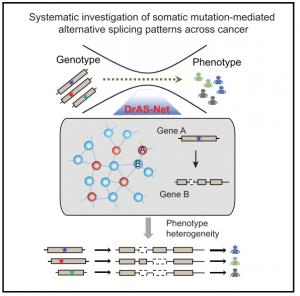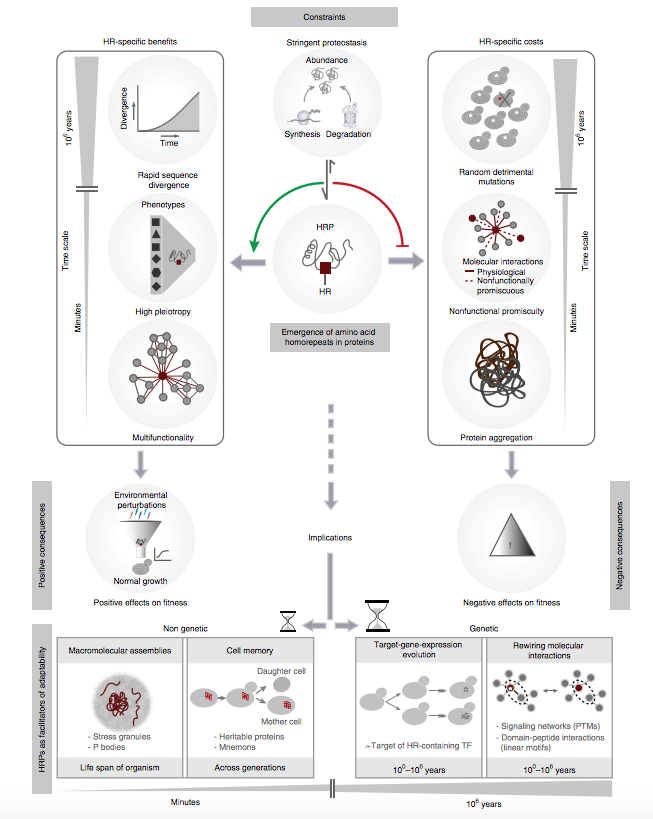We will soon be recruiting at the PhD level in the following areas: Cancer Genetics, Human Genetics, Omics, Data Science, Synthetic Biology and Molecular/Cell Biology. Watch this space for future job postings, and follow Madan on Twitter.
Current job openings:
We are always looking for talented individuals who are motivated to explore the intersection between data science and biology in a multidisciplinary and diverse working environment. The Babu Group strives to build and maintain a culture of respect, diversity, and inclusion. We strongly feel these values directly contribute to the dynamic and intellectually stimulating scientific environment we can provide.
It is increasingly appreciated that alternative splicing plays a key role in generating functional specificity and diversity in cancer. However, the mechanisms by which cancer mutations perturb splicing remain unknown. Here, we developed a network-based strategy, DrAS-Net, to investigate more than 2.5 million variants across cancer types and link somatic mutations with cancer-specific splicing events. We identi-fied more than 40,000 driver variant candidates and their 80,000 putative splicing targets deregulated in 33 cancer types and inferred their functional impact.
Strikingly, tumors with splicing perturbations show reduced expression of immune system-related genes and increased expression of cell proliferation markers. Tumors harboring different mutations in the same gene often exhibit distinct splicing perturbations. Further stratification of 10,000 patients based on their mutation-splicing relationships identifies subtypes with distinct clinical features, including survival rates. Our work reveals how single-nucleotide changes can alter the repertoires of splicing isoforms, providing insights into oncogenic mechanisms for precision medicine.
The paper by Li et al can be found here.

Welcome to Xiaohan who has started his postdoc in our group last month!

Proteins with amino acid homorepeats have the potential to be detrimental to cells and are often associated with human diseases. Why, then, are homorepeats prevalent in eukaryotic proteomes? In yeast, homorepeats are enriched in proteins that are essential and pleiotropic and that buffer environmental insults. The presence of homorepeats increases the functional versatility of proteins by mediating protein interactions and facilitating spatial organization in a repeat-dependent manner. During evolution, homorepeats are preferentially retained in proteins with stringent proteostasis, which might minimize repeat-associated detrimental effects such as unregulated phase separation and protein aggregation. Their presence facilitates rapid protein divergence through accumulation of amino acid substitutions, which often affect linear motifs and post-translational modification sites. These substitutions may result in rewiring protein interaction and signaling networks. Thus, homorepeats are distinct modules that are often retained in stringently regulated proteins. Their presence facilitates rapid exploration of the genotype– phenotype landscape of a population, thereby contributing to adaptation and fitness.
The paper by Chavali et al can be found here.
